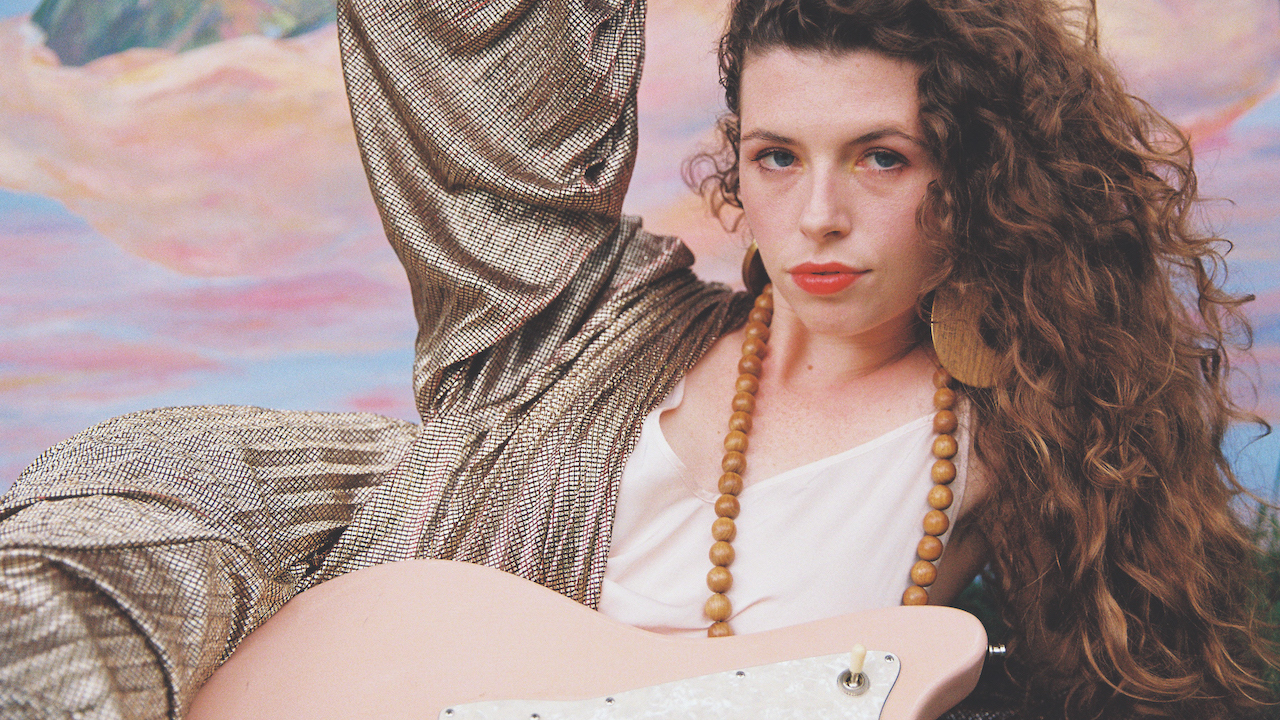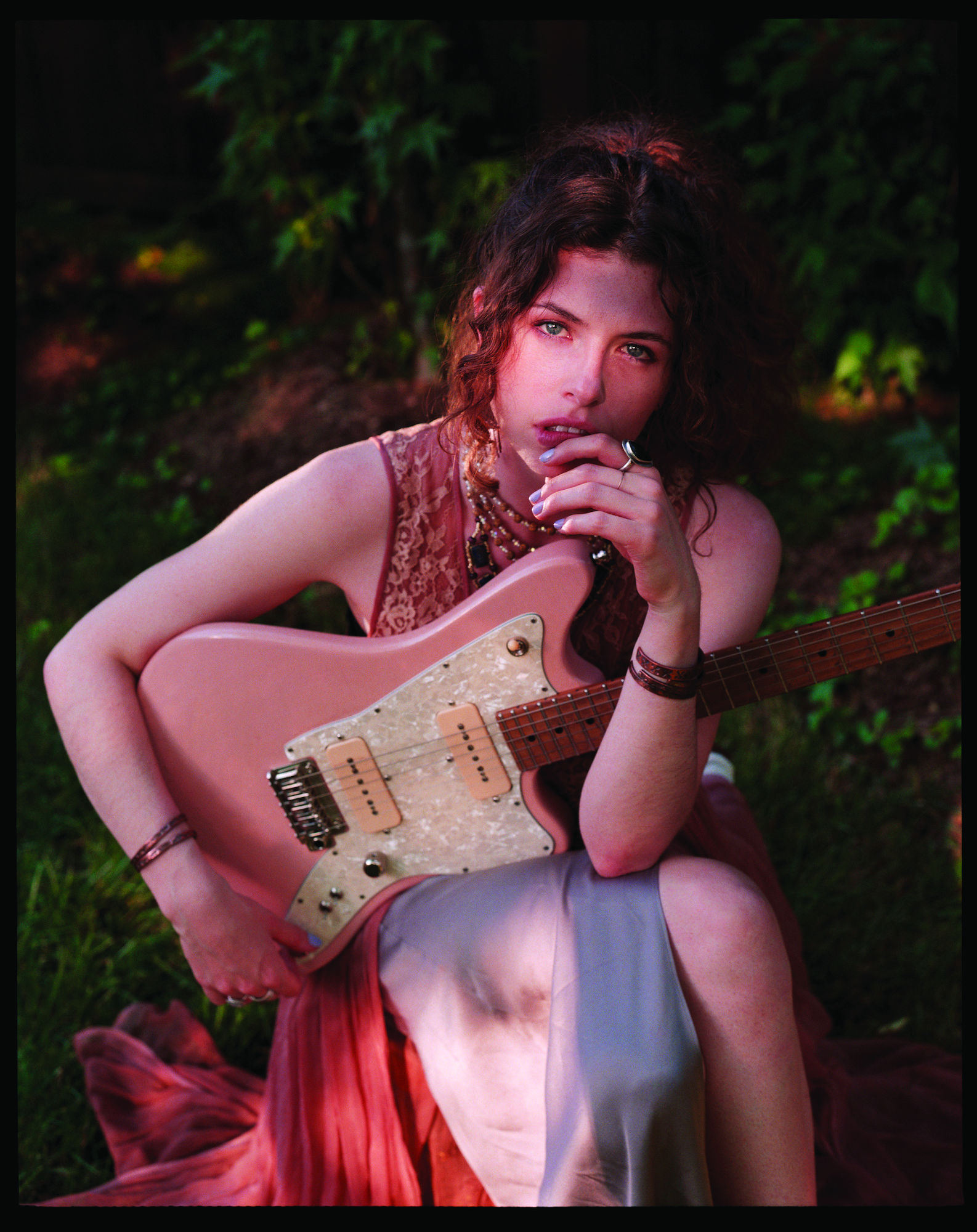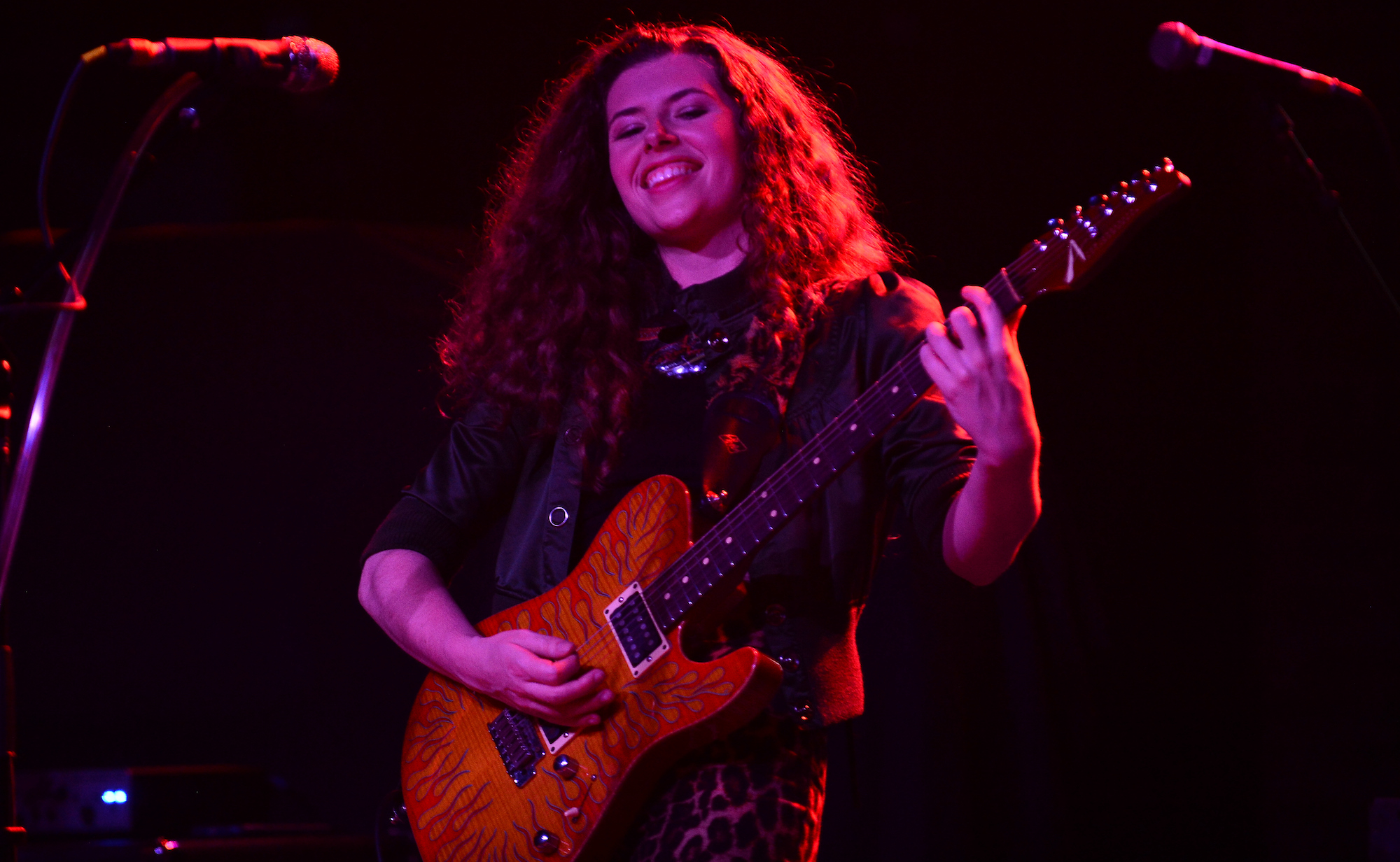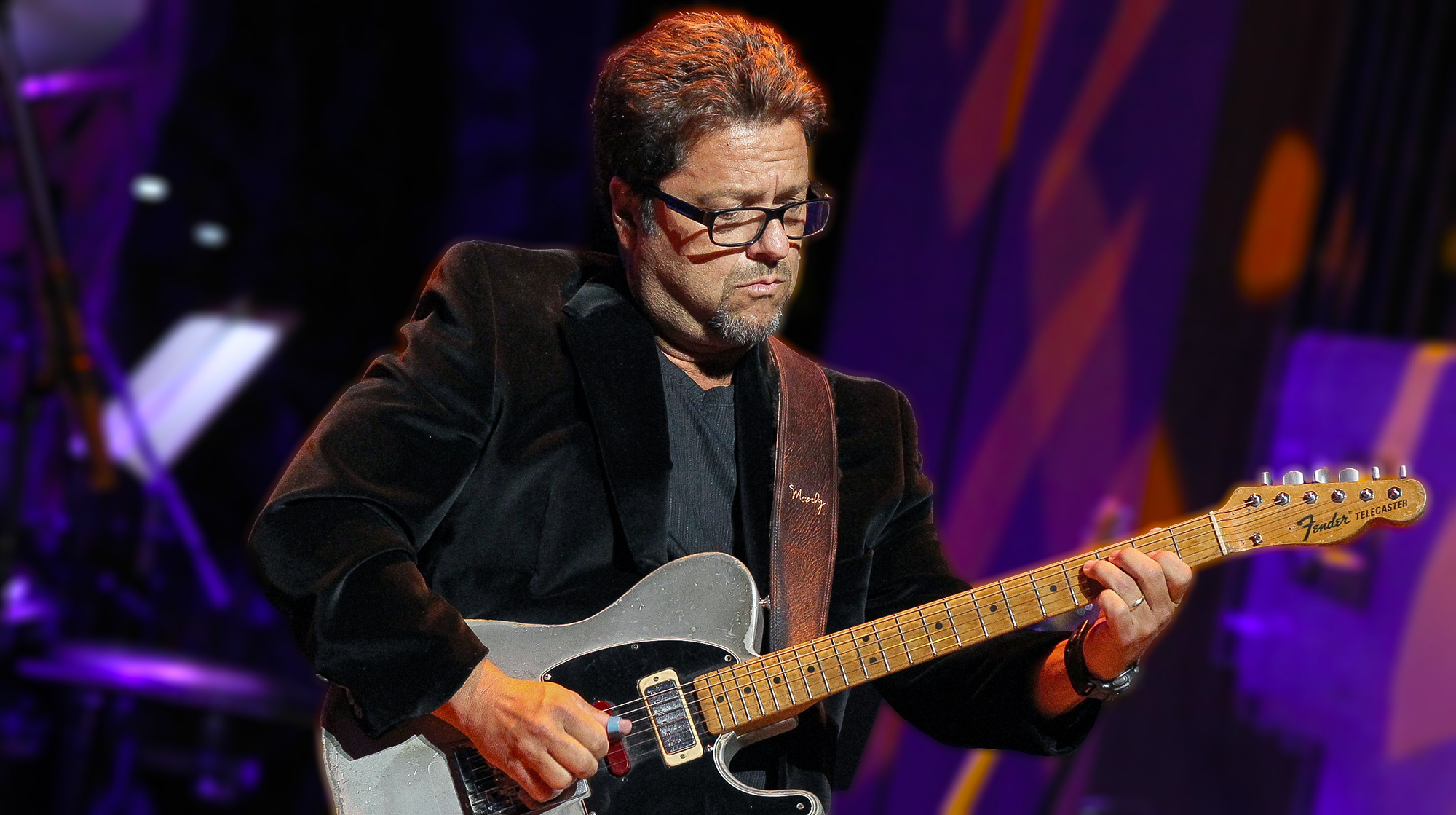“Femininity in rock and roll isn’t always something you find. If you’re a woman, being tough has meant being like Joan Jett”: With a helping hand from Greta Van Fleet's Sam Kiszka, Hannah Wicklund has her eyes on the prize
Armed with a pink Tom Anderson Raven – and, on occasion, Kiszka's Gibson Murphy Lab SG – Wicklund is back with an album the blues-rocker says is her most authentic to date

Listening to Hannah Wicklund’s music, you can tell she’s been on the edge. That’s nothing new though, as 2018’s Hannah Wicklund and the Steppin Stones was a buffet of blues-rock songsmithery defined by mega-sounding guitars.
We knew Wicklund could rock, and it was evident that her voice could match even the highest registers that her cache of Tom Anderson guitars could conjure. But we didn’t know that in the five years since that album’s release, Wicklund was subconsciously hell-bent on becoming a version of herself that would be remembered as halcyon.
If that sounds lofty or weighty, fair enough. But listening to Wicklund’s latest, The Prize, there’s no denying the radiance that blooms throughout it. Wicklund apparently would agree.
“There are songs on here that are the most authentic I’ve ever written,” she tells us. “The title track is the deepest piece of music I’ve done. It wasn’t intentional, and I didn’t set out to do that. But it’s an example of the beauty of this album, as it’s me dealing with issues like being transient, being back in my childhood room at my parents', and expressing who I was becoming.”
Who Wicklund has become is of note, as The Prize’s 10 tracks run the gamut of emotion via guitar and piano. Laying her soul bare was one thing, but to get it all on tape in a serious yet whimsical way took some help from Greta Van Fleet bassist Sam Kiszka.
“Sam helped this record be less high stress,” she says. “He came from a different world, and that let us experiment and breathe rather than just hammer things out like in the past.
“That was important for me to experience, and it’s reflected in the record. I can’t tell you how often we laughed while trying new things that seemed weird or off the wall but nevertheless worked. I laughed so hard making The Prize, it was ridiculous, but I’m so proud of the tones we found. A lot of that was Sam’s editing and trusting him enough to follow his lead. It was a lovely dynamic.”
All the latest guitar news, interviews, lessons, reviews, deals and more, direct to your inbox!
Kiszka aside, Wicklund is standing on her own two feet with The Prize. Her aura shines through, revealing an artist prepared to climb the music ladder on her terms.
Femininity in rock and roll isn’t always something you find. If you’re a woman, being tough has meant being like Joan Jett
“I’m singing about strong feminine things,” she says. “If I’d grown up seeing women wearing a dress onstage with a guitar, I might have been more comfortable with it, but I didn’t.
“So a big part of this record is about expressing and embracing my girliness. I’m finally comfortable with all my natural feminine aspects, which led me to embrace all I love unabashedly. I didn’t think I’d ever be able to, but I’m trying to give girls who love rock and roll a record that makes them feel good, but also makes me feel good. I’m proud and excited because I feel like I’ve done that. I can’t wait to get out and share this.”

What was your internal mission statement going into The Prize?
“I’m not sure I had one. I’ve always sat down and let whatever song be what it is. When I was writing this record, it became an eagle-eyed view of my transition from girlhood to womanhood.”
Specifically how so?
“A lot of this was about embracing my femininity for the first time. Lyrically, many of the songs, maybe unintentionally, speak to my struggles as a woman. Femininity in rock and roll isn’t always something you find. If you’re a woman, being tough has meant being like Joan Jett.
“As a 20-something woman, I was in this interesting place, going through difficult stuff regarding emerging womanhood. There have been tough breakups and hard things in business, and this album is like a time capsule of a certain period in my life where I was processing big stuff.”
I picked up a lot of “light and shade” in the loud/quiet guitar dynamics. It seems like that was representative of what you were dealing with.
“Yeah, I wanted to cover the full spectrum of emotion with my songwriting. I like it when an album takes you on a journey. Each song is different, and I want a lot of juxtapositions and, like you said, a lot of light and shade. So I’d have quiet moments, then go into a scream, and then a whisper, and I’d do that with the guitars, too. That represents life, and I want my music to reflect the loud and quiet moments.”
Many people were probably expecting a straight-up blues record, but there’s a lot of piano and additional instrumentation on The Prize.
“Thank you. The piano was my first instrument, which I started on when I was three. I went through a crash course in Beatles songs and then got into classical music and compositions when I was seven. After that, I picked up guitar and almost abandoned piano, even though I was a good young player. So with this record, I came full circle there and wanted to have a lot of piano after not really playing for years.”
There’s plenty of guitars, too. Surely, you won’t be leaving that behind.
“Oh, no, I won’t be. I love my guitars, and I love my power trio. I’ve been doing that forever.”
The final three tracks – Intervention, Dark Passenger, and Sun to Sun – are a full-on sonic assault, as far as guitars go.
“Those are the most guitar-forward tracks on the record. On Intervention, I was going for an almost country-meets-blues-rock vibe, and I mainly used my pink Tom Anderson Raven, which Sam gifted to me while writing this record. I had mentioned in passing that I was ready for a pink guitar, which I was averse to in the past out of fear of being labeled a ‘girl with a guitar.’ That guitar is part of the beauty of embracing the ability to be a woman who wears a dress, loves girly things, and can rip a guitar solo.
“The Raven is all over the record – pretty much every lead was done with it. But I am compelled to believe that Sam’s Gibson SG, which is a Murphy Lab model based on a ’61 or ’62, also made it onto the record.”

What amps and pedals did you use?
“Many of the guitar sounds on this record came straight from the amp. As far as guitars go, this record was different because I wasn’t really playing through much of my gear. In the past, I’ve had a whole ’board in the studio, and I used Orange [Rocker 30] amps a lot. My Orange is a great live amp, but it wasn’t doing it in the studio, so I went with a Fender Princeton Reverb, which came about because I had access to a lot of Sam and Jake [Kiszka]’s Greta Van Fleet rig.
“He was very important. Sam and I met in the studio on this record. We’d had the same management for a long time, and the idea was to get us in the studio and see how we vibed. I also needed a bassist, and he was a huge help there. But it was clear right away that it would be enjoyable. The energy was jovial, and Sam helped bring the biggest thing missing from my recording experiences: fun.”
Clearly, The Prize is mostly defined by growth, both musically and personally.
“It means the absolute world to me, because it’s the full-circle moment I needed to step into womanhood. I feel like I’ve become who I’m supposed to be. And you’re right – there’s been massive growth for me personally and musically. From recording to releasing to playing, my life path was carved out with this record.
“I didn’t intentionally write a record for women who love rock, but in hindsight, I realized that I only had a few strong female influences growing up with music, like Stevie Nicks, Janis Joplin, and Joni Mitchell.
“Rock music is always so masculine, and there’s a lot of misogyny, sexualization, and objectifying of women. I know that sex, drugs, and rock and roll are how it is, and I love rock and roll, but there is something about being a woman who sings those songs and not really understanding that stuff as a kid that makes you think.
“But I’m not a little girl anymore; I’m a grown woman singing those songs, and I realize that a woman’s work is never done. I feel like I’ve reached a plane of musical existence about female empowerment in rock. I never set out to do that, but it’s how it’s turned out because it’s what I need for myself.”
- Hannah Wicklund's The Prize can be purchased or streamed now.
Andrew Daly is an iced-coffee-addicted, oddball Telecaster-playing, alfredo pasta-loving journalist from Long Island, NY, who, in addition to being a contributing writer for Guitar World, scribes for Rock Candy, Bass Player, Total Guitar, and Classic Rock History. Andrew has interviewed favorites like Ace Frehley, Johnny Marr, Vito Bratta, Bruce Kulick, Joe Perry, Brad Whitford, Rich Robinson, and Paul Stanley, while his all-time favorite (rhythm player), Keith Richards, continues to elude him.



